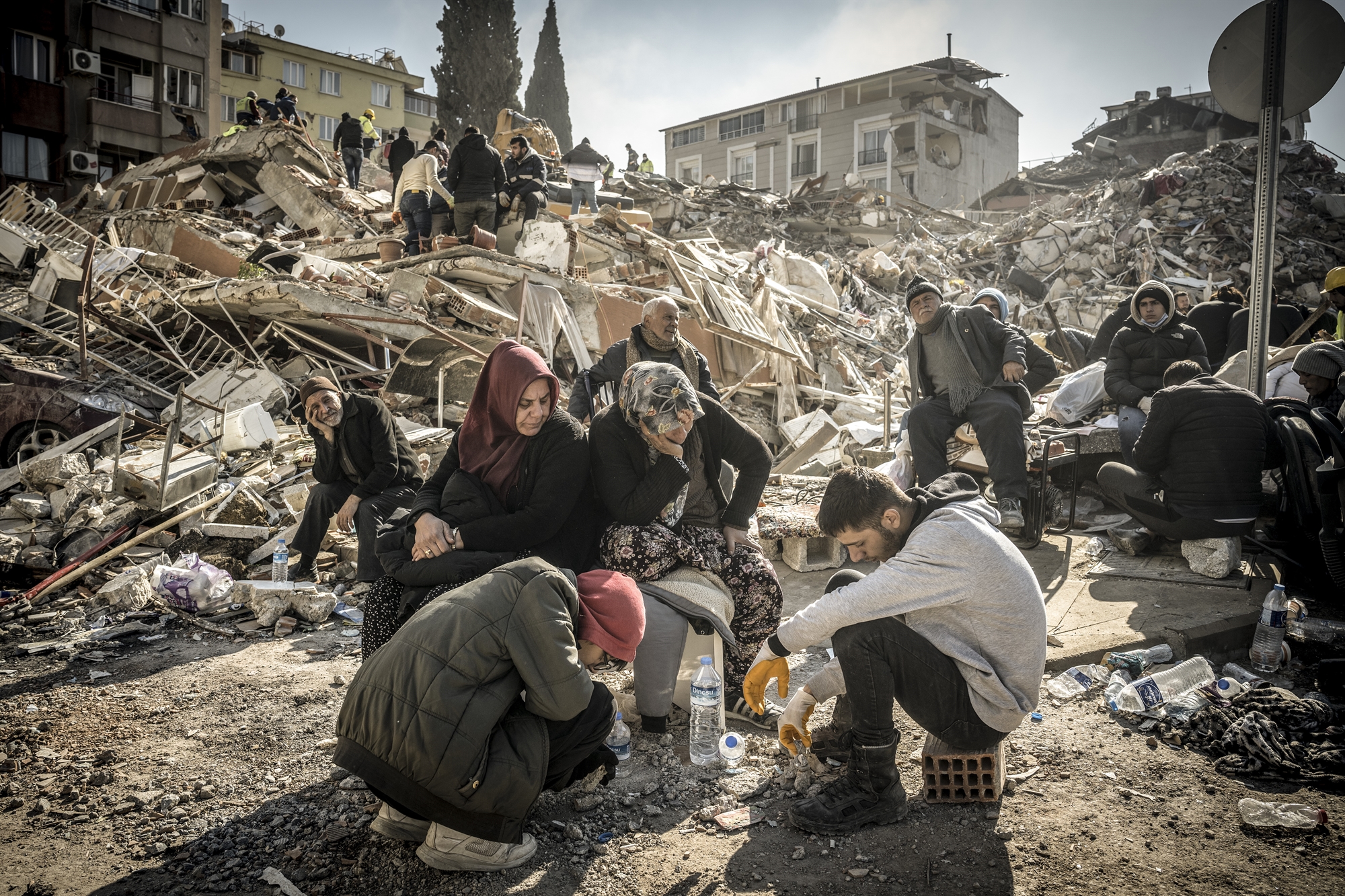
Devastating earthquake in Turkey and Syria has primarily a human dimension. A father who refuses to let go of his dead daughter’s hand, an older sister who saves her younger brother amidst the rubble, a rescuer who quenches the thirst of a stuck child by offering him water from a plastic bottle cap, the pictures are shocking and painful for the mind. However, having made a hard landing in a cynical reality, we are invited to evaluate the consequences of the earthquake in the political and foreign spheres.
Two and a half weeks ago, I met in Ankara with members of the Greek delegation of the Greek-Turkish Forum, a forum for dialogue between Greeks, Turks, Greek Cypriots and Turkish Cypriots. We had the opportunity to meet, among others, with Turkish Foreign Minister Cavusoglu, representatives of the opposition parties and Babacan, Erdogan’s former finance and foreign minister and now chairman of one of the six parties in the opposition coalition.
Opposition representatives expressed excessive optimism, bordering on euphoria, about the election results. One of Aksener’s closest advisers, he playfully told us that “Erdogan has the privilege of choosing the day he is defeated.” Of course, when asked about such cases, when an authoritarian leader lost power as a result of elections, he did not have an answer. I asked the same question to Michael Rubin, and he hardly mentioned Pinochet (lost in the first referendum) and Milosevic (nominated for early elections). Be that as it may, public opinion polls before last Monday’s earthquake showed a clear advantage for the opposition in the parliamentary elections, as the sum of six parties reaches 45%-47%, with Erdogan’s party, although ahead, but pressed the lowest percentage (below 6% ) of its state partner Bahtseli and thus not exceed 35%-37%.
However, presidential elections are different. According to the plan, on February 13, the “chosen one” of the opposition should be announced, which will be none other than Kilichdaroglu. But, perhaps, it will move with time, since the country mourns its dead. The same can be done with the date of the elections, with June 18 being one of the most likely dates, although Erdogan may try – with much more difficulty and with already suspicious opponents – to postpone them later, even by six months.
In this struggle to the end, the opposition is trying to win the battle for the impressions and favor of foreign forces, predisposing to structural changes in the Constitution and, accordingly, in the functioning of the government, from a hyper-centralized and anti-institutional model, the principle of a one-to-one collective scheme with expanded powers of the prime minister (abolished by Erdogan ) and Parliament. Continuing where Biden left off, the Turkish opposition is using the same terms to frame its fight against the government as a battle of democracy against authoritarianism.

He is obliged to speak about the errors of spatial planning, the weakness of the state apparatus and the inconsistency of the corrupt model.
During the discussions, we liked to make clearer their distinction with Erdogan’s tactics, even in relation to the Greek-Turkish ones, and a member of the official opposition, strongly inclined towards Kılıçdaroğlu, called the Turkish president’s threats against us a violation of the UN Charter and promised dialogue instead of frigates and floating drilling rigs. installations.
In general, our opposition interlocutors distanced themselves from the Turkish-Libyan pact, and some in a subtle way even from the Blue Motherland, accusing Erdogan of militarizing foreign policy, considering him responsible for strengthening anti-Turkish sentiment. front in the area. Cavusoglu, for his part, insisted on the militarization of the islands, in a cautiously warning tone in case the development of the islands continues, although the atmosphere after the terrible earthquake will wisely moderate the corona for some time at the expense of Greece.
Erdogan is quite constrained and in dire need of external financial assistance to quickly heal the wounds inflicted by natural disasters, with a visible risk of losing control, despite the imposition of a three-month state of emergency in ten provinces, in order to have the initiative of the movement. Of course, the image of a strong leader of a powerful country, which allegedly achieves success and raises its status alone, suffers. However, at the moment he is concerned about how to change his negative image at home, and for this he must reconsider, at least temporarily, the tactical and strategic aspects of his foreign policy.
Regardless of the magnitude of the earthquake, it will apologize for spatial planning errors and blatant weaknesses of an impersonal and corrupt model, while at the same time being forced to deal effectively and quickly with the explosive problems of care, housing, unemployment. , pandemics, reconstruction and, ultimately, the displeasure, if not anger, of his compatriots. And especially in areas close to the ruling party, where almost 15% of the country’s population lives. This tragedy can “lay” Erdogan into a Procrustean bed with well-known consequences.
Mr. Konstantinos Filis is Director of the Institute of International Affairs, Professor at the American College of Greece, and International Affairs Analyst for ANT1.
Source: Kathimerini
Anna White is a journalist at 247 News Reel, where she writes on world news and current events. She is known for her insightful analysis and compelling storytelling. Anna’s articles have been widely read and shared, earning her a reputation as a talented and respected journalist. She delivers in-depth and accurate understanding of the world’s most pressing issues.